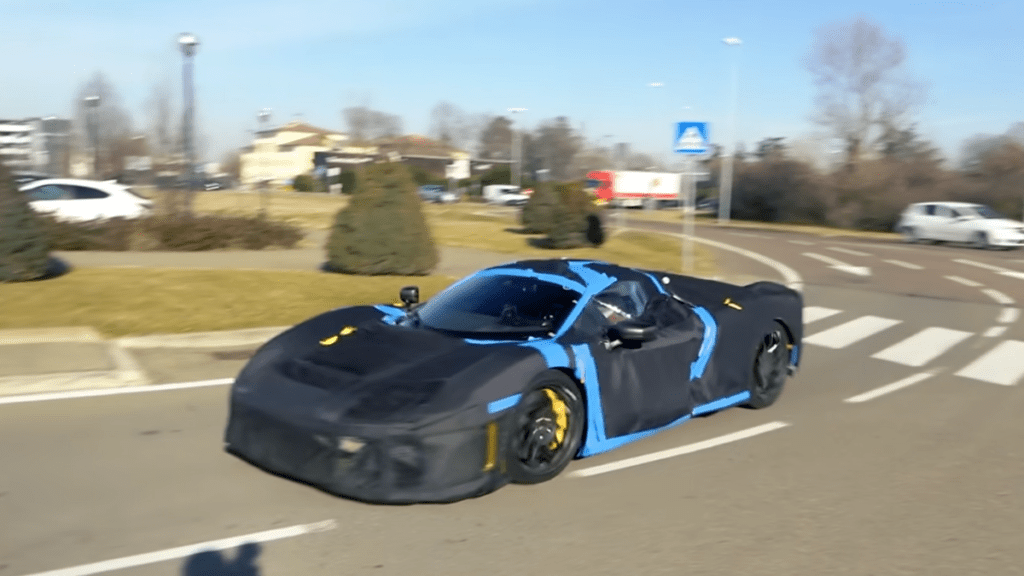Ferrari's Next Hybrid Hypercar Will Pack Le Mans-Winning V6 Power

Spotted testing on the streets right outside Ferrari’s Maranello facility, this completely covered prototype appears to be the next-generation Ferrari hypercar the world has been waiting for. It has been eleven years since the hybrid LaFerrari made its debut, and the regular series-production Ferrari models have surpassed it in speed and power since then. It’s time again to up the ante and get a real race-inspired machine back in the Fezza lineup as a halo model, and this time it’s packing proven Le Mans 24 Hour speed, cribbed directly from the brand’s successful 499P Hypercar.
The Ferrari LaFerrari successor is here.
The word on the street is that Ferrari is calling this car the F-250, which seems like a Ford legal battle waiting to happen here in the U.S. market. It harkens back to the iconic 250 models of the 1960s, and builds upon the LaFerrari’s internal “F-150” moniker.
Michael Mann’s Ferrari Is A Great Car Movie
Since the days of the LaF, the company has put all its eggs in the hybrid basket, pushing out the SF90 and the current range-topping 830-horsepower 296. The track-only FXX-K version of the old LaFerrari made 1,036 total system horsepower, using a gas-powered V12 augmented by a 187 horsepower electric motor. You can place a bet that the next Ferrari hypercar will outdo even that.
For the new F-250, Ferrari seems to be continuing its recent theme of turbocharged V6 engines, perhaps aiming for a lighter weight and more agile hybrid hypercar this time. Based on the video, it sure doesn’t sound like this car will have anything other than a turbo V6, likely a modified street version of the 499P’s F163 engine.
Interestingly, the above video also shows that Ferrari is benchmarking a Tesla Model S Plaid in testing. Is it possible that Ferrari engineers won’t rest until their new hypercar accelerates quicker than the $89,990 California-built EV? It sure would seem so.



